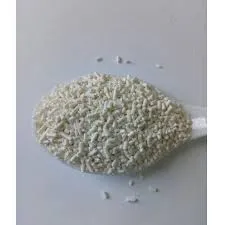
potassium humate fertilizer
Potassium Humate Fertilizer An Overview of Its Benefits and Applications
In the world of agriculture and horticulture, fertilizers play a vital role in enhancing soil fertility and improving crop yields. Among the myriad options available, potassium humate fertilizer has emerged as a versatile and effective choice for both commercial farmers and home gardeners. Derived from the natural decomposition of organic matter, potassium humate offers a blend of valuable nutrients while promoting healthy soil structure and microbial activity.
What is Potassium Humate?
Potassium humate is a dark, organic substance obtained from lignite, a type of coal, which undergoes a process called humification. This process involves microbial action that transforms complex organic materials into simpler compounds, resulting in humic substances that are rich in nutrients. Potassium humate contains a substantial amount of potassium, an essential macronutrient for plant growth, as well as humic acids and fulvic acids that improve nutrient uptake, soil health, and plant development.
Key Benefits of Potassium Humate Fertilizer
1. Enhanced Nutrient Absorption One of the primary advantages of potassium humate is its ability to improve the uptake of nutrients by plants. The humic acids present in potassium humate can chelate minerals and trace elements, making them more accessible to plant roots. This leads to healthier, more vibrant crops and can significantly reduce the need for synthetic fertilizers.
2. Soil Improvement Potassium humate acts to improve soil structure by promoting the aggregation of soil particles. This enhanced structure increases water retention, aeration, and drainage, which are crucial for root health. In sandy soils, it helps retain moisture, while in clay soils, it alleviates compaction.
potassium humate fertilizer

3. Increased Microbial Activity The application of potassium humate fosters a thriving ecosystem of beneficial microorganisms in the soil. These microbes play an essential role in nutrient cycling and organic matter decomposition, further enhancing soil fertility and plant health.
4. Stress Resistance Plants treated with potassium humate display greater resilience against environmental stresses such as drought, salinity, and temperature fluctuations. This is particularly valuable in a time of increasing climate unpredictability, ensuring that crops remain productive under less-than-ideal conditions.
5. Organic and Sustainable With a growing emphasis on sustainable agricultural practices, potassium humate is an appealing choice due to its organic origins. It is suitable for use in organic farming and can enhance the environmental sustainability of agricultural practices.
Application of Potassium Humate Fertilizer
Potassium humate can be applied in various forms, including granules, powders, or liquid concentrates. The application rates and methods can vary depending on the specific crop, soil conditions, and the desired outcomes. Typically, it can be mixed into the soil at planting time or used as a foliar spray to deliver nutrients directly to the leaves.
Conclusion
In conclusion, potassium humate fertilizer is a powerful tool for enhancing soil health and promoting plant growth. Its unique ability to improve nutrient absorption, enhance soil structure, and increase microbial activity makes it a valuable asset in modern agriculture. As farmers and gardeners continue to seek sustainable and effective solutions for their nutrient needs, potassium humate stands out as an organic option that delivers impressive results while supporting environmental stewardship. Whether you are cultivating crops on a large scale or nurturing a small garden, potassium humate can help unlock the full potential of your plants.
-
Why Glacial Acetic Acid Food Grade Is Essential in FlavorNewsMay.26,2025
-
Surging Export Growth of Food Additives in ChinaNewsMay.26,2025
-
How Ammonium Nitrate Fertilizer Boosts Crop YieldsNewsMay.26,2025
-
How 1,2,3-Benzotriazole Shields Plastics from UV DegradationNewsMay.26,2025
-
Cyanide in Gold Mining: Protecting People and the PlanetNewsMay.26,2025
-
Aluminum Hydroxide in Modern Sunscreen FormulationsNewsMay.26,2025
-
Understanding Synthetic Rubber OptionsNewsApr.27,2025
Hebei Tenger Chemical Technology Co., Ltd. focuses on the chemical industry and is committed to the export service of chemical raw materials.
-

view more DiethanolisopropanolamineIn the ever-growing field of chemical solutions, diethanolisopropanolamine (DEIPA) stands out as a versatile and important compound. Due to its unique chemical structure and properties, DEIPA is of interest to various industries including construction, personal care, and agriculture. -

view more TriisopropanolamineTriisopropanolamine (TIPA) alkanol amine substance, is a kind of alcohol amine compound with amino and alcohol hydroxyl, and because of its molecules contains both amino and hydroxyl. -

view more Tetramethyl Thiuram DisulfideTetramethyl thiuram disulfide, also known as TMTD, is a white to light-yellow powder with a distinct sulfur-like odor. It is soluble in organic solvents such as benzene, acetone, and ethyl acetate, making it highly versatile for use in different formulations. TMTD is known for its excellent vulcanization acceleration properties, which makes it a key ingredient in the production of rubber products. Additionally, it acts as an effective fungicide and bactericide, making it valuable in agricultural applications. Its high purity and stability ensure consistent performance, making it a preferred choice for manufacturers across various industries.











